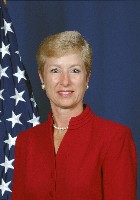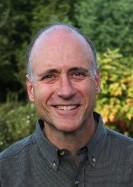Pi Sigma Alpha Undergraduate Journal of Politics paper submissions
The Editorial Board of the Pi Sigma Alpha undergraduate journal, the national political science honors society, is calling on undergraduate students to submit original research to the journal. Students are encouraged to submit research from honors theses, independent research projects, senior seminars, or methods courses. Submissions should be less than 35 double spaced pages in length. Successful submissions have a well-developed thesis, compelling arguments, and original analysis.
Submission deadlines are October 1st for the fall issue of the journal, and February 1st for the spring issue.
Submissions should be sent to: psajournalou@gmail.com
SNaPP Lab Seeking Research Assistant Applications, Deadline 8/21/15
Are you interested in political behavior, the study of why people think, act, and feel the way they do about politics? Would you like to be involved in collaborative research with other students, working directly with a professor? Applications to become a research assistant in the Social Networks and Political Psychology (SNaPP) Lab are now being accepted.
For more information on the SNaPP Lab, please visit our website: http://snapp-lab.wm.edu/. Information about applying can be found at http://snapp-lab.wm.edu/applypage.html. Applications should be submitted through the Tribe Careers site (https://wm-csm.symplicity.com/students/). Search for “SNaPP Lab Research Assistant,” position #17810.
The deadline to apply is Friday, August 21st at 5:00 p.m. Please contact Professor Jaime Settle at jsettle@wm.edu with any questions.
SSRMC hosts Psychophysiological Methods in Political Science Workshop
In mid-July, the SSRMC hosted the first ever Psychophysiological Methods in Political Science Workshop. As one of only four active political psychophysiology labs in the country, government professor Jaime Settle’s Social Networks and Political Psychology Lab is breaking new ground in political science research. William & Mary student researchers John Stuart, Zarine Kharazian, and Edward Hernandez welcomed graduate students from Temple University, UN Lincoln, and UC Merced and W&M alumna Taylor Feenstra (currently a grad student at UC San Diego) to the three-day event to share their experiences conducting psychophysiological research and discuss strategies for moving the field forward. Read more here.
Honors Fellowship Kickstarter
Interested in helping to fund a W&M Honor’s Thesis Project? Check out the “kickstarter” site, http://
Prof. Paul Manna to Speak on “Education Policy, Performance, and Democratic Accountability: State and Local Voting Behavior in Elections for State Education Chief”
April 22, 5 PM, SSRMC
Please join us at the SSRMC to hear Prof. Paul Manna, Associate Professor of Government at the College discuss his work “Education Policy, Performance, and Democratic Accountability: State and Local Voting Behavior in Elections for State Education Chief,” detailed in the abstract below. Food and drinks will be provided! Abstract: Chief state school officers lead state education agencies (SEAs) and are responsible for overseeing implementation of state and federal education policy. Although every state has an SEA, chiefs assume their offices through various means, including by popular elections in around a dozen states. By studying these elections from 1986 to 2010, this paper addresses the following research question: Is voting behavior in elections for state education chief, in particular voter turnout in those races, associated with the content of policy and with student outcomes? Although the literature on voter turnout shows that turnout declines in down-ballot elections, the heightened attention to schooling via expanded testing and publication of accountability report cards has provided voters with much information to judge state education performance. By considering whether turnout in chief elections is sensitive to policy and outcomes, the analysis brings evidence to the debate about whether voters are capable of holding accountable their leaders who occupy relatively low-profile elected offices.
SNaPP Lab Career Center Event
April 1st, 4 p.m, The Career Center
Making a Living Making a Difference: Non-Profit, Government, Environmental, and International Careers
March 28th 10 a.m. – 2:45 p.m., Sadler Center 3rd Floor
For more information, please visit: http://career.wm.edu/CFM/
Political Scientist Don Green Visits William and Mary
Friday, February 27th
Government Department Colloquium, 12 p.m., Morton 37
Field Experiments Workshop, 3:30-5 p.m., Morton 37
“The Accidental Diplomat: 35 Years In The Foreign Service” with Ambassador Katherine Canavan
Thursday, November 20th, 12:30-3 p.m.
Katherine Hubay Canavan (formerly Peterson) was a Foreign
R Workshops
Wednesday, October 29th, 4:30-6:00 p.m., Morton Hall 244 Learning R: The Basics
(Advanced Registration Required)
Wednesday, November 5th, 4:30-6:00 p.m., Morton Hall 244 Learning R: Basic Data Analysis
(Advanced Registration Required)
Wednesday, November 12th, 4:30-6:00 p.m., Morton Hall 244 Learning R: Data Visualization
(Advanced Registration Required)
The goal of these workshops is to provide sufficient foundation for students in the basics of using R to equip them to explore and learn more on their own. More information can be found here.
Powerful feelings: Efficacy Beliefs and Political Action on Climate Change
Monday, October 27th, 12:30 p.m.
Social Science Research Methods Center
*Lunch provided* Neil Stenhouse, Center for Climate Change Communication, George Mason University Along with other psychological motivations like shared identity and perceptions of injustice, feelings of efficacy have been found to be one of the major factors associated with participation in collective action. There are specific subtypes of efficacy belief, which can be more or less important in explaining different types of behavior. For climate change, which type of efficacy has the most powerful effect on behavior? For those who wish to encourage action, is it more important to convince people that they as individuals are capable of making a meaningful contribution to collective efforts? To convince them that collective efforts will convince politicians to act? Or that the actions politicians take will be effective in stopping climate change? The work Neil is presenting uses confirmatory factor analyses of cross-sectional survey data to test whether conceptual distinctions between different types of efficacy belief for climate change have a psychological reality – whether they each exist as distinct, measurable psychological entities, or whether response items can be better explained as caused by more general latent variables. Using structural equation modeling, he tests how strongly efficacy beliefs are related to self-reported measures of participation in collective action. This work provides an important first step in determining which efficacy beliefs are psychologically distinguishable and potentially influential for complex social problems like climate.
Workshop on Social Network Theory
Thursday, October 23rd, 12:30 p.m., Morton 37
*Lunch provided* Bob Huckfeldt, University of California—Davis Professor Huckfeldt is Distinguished Professor of Political Science at University of California-Davis and a member of the American Academy of Arts and Sciences. He is one of the leading scholars of public opinion, particularly social context and social networks. He will talk with students about the important concepts and ideas that underpin the study of social networks in politics.
